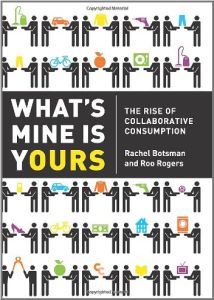Join getAbstract to access the summary!

Join getAbstract to access the summary!
Rachel Botsman and Roo Rogers
What's Mine Is Yours
The Rise of Collaborative Consumption
HarperBusiness, 2010
What's inside?
Financial upheaval has created a pathway to a kinder, more introspective era.
Recommendation
Finding a glimmer of hope in the economic environment is a challenge these days – particularly in the aftermath of the recession. But business writer Rachel Botsman and entrepreneur Roo Rogers make you feel optimistic about the concept of “collaborative consumption” and its potential to alter the way people conduct business – and business relationships. The authors cite many user-friendly marketplaces where consumers share, rent, trade and barter while creating meaningful, human connections. Botsman and Rogers suggest that financial upheaval has paved a pathway to a kinder, more introspective era that will bring out the innate goodness and spirit of cooperation in individuals. Naive or brilliant, you decide. getAbstract recommends this book to marketers interested in how the marketplace is shifting and believes that anyone seeking some positive economic news will enjoy this informative, delightful and uplifting work.
Summary
About the Authors
Rachel Botsman writes, consults and lectures on collaboration and sharing. Entrepreneur Roo Rogers is president of Redscout Ventures in New York.






















Comment on this summary